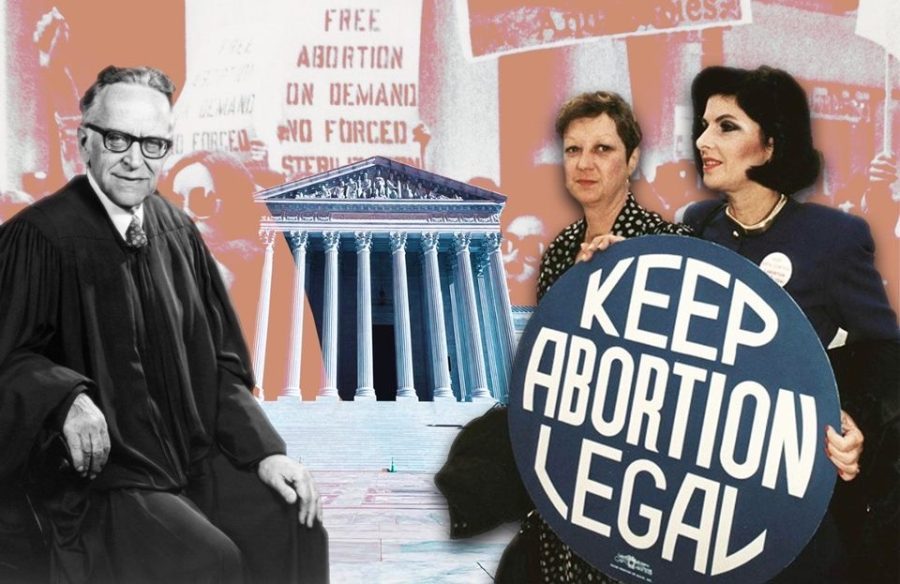49 years after Roe v. Wade, reproductive healthcare is still threatened
The Supreme Court case Roe v. Wade has protected abortion rights in America for nearly 50 years, but recent challenges to these rights mean that the battle is not over.
February 18, 2022
It has been 49 years since the Supreme Court case Roe v. Wade. That case set an important historical precedent—the termination of a pregnancy through abortion is a constitutional right.
Nearly half a century since this landmark decision, reproductive rights are still in danger. Restrictive bills have been created that ban abortion after a heartbeat is detected (as early as six weeks) in multiple states, including Texas’s S.B. 8 and Georgia’s House Bill 481, which was struck down in a federal court in 2020 due to violation of the 14th amendment.
These bills (and similar ones in other states) do not technically ban abortion by name if enforced. However, many women do not know they are pregnant at the six-week mark, making it impossible for them to terminate lawfully. The progression of some of these bills through the federal court system has raised concerns that the decision of Roe v. Wade could be overturned, jeopardizing reproductive rights nationwide.
As a result, many women will be forced to carry unwanted pregnancies to term. While this may allow continued fetal development in cases where the pregnancy is viable, it poses serious risks to the health of the parent. Specifically, carrying a pregnancy to term holds 33 times more risks than ending one through abortion, meaning even if the fetus’ life is preserved, the mother’s may be lost.
Furthermore, these laws will not mean a sudden end to the termination of pregnancies. Despite the intentions of the politicians who endorse these “heartbeat bills,” such as Georgia Gov. Brian Kemp (who signed his state’s bill into law), abortion does not end when it is outlawed.
Instead, unsafe methods are pursued. Viewing the issue globally, the World Health Organization reports that forty-five percent of abortions in 2021 were done unsafely and that six out of ten unplanned pregnancies end in termination. This occurs particularly in areas where abortion access is either criminalized or nonexistent.
These unsafe abortions carried out either by a pregnant person themselves or an untrained professional pose many risks, including hemorrhage, organ damage, infections from unsterilized tools, loss of future fertility and/or death. In the end, pro-life proponents of these bills are prioritizing the safety of unborn children over people who may need safe, medically essential abortions in order to save their lives.
The previously mentioned “heartbeat bills” such as S.B. 8 and House Bill 481 have shifted the issue of personal healthcare to a political and moral debate, with a stark gap between Democrats, who trend more pro-choice, and Republicans, who trend more pro-life. Respectively, 80% of Democrats and 35% of Republicans approve of abortions in most circumstances.
This difference in opinion has heavily influenced partisan politics. In his 2016 and 2020 campaigns, Donald Trump promised to defund Planned Parenthood and championed the pro-life movement. In contrast, current president Joe Biden promised in his 2020 campaign to further solidify Roe v. Wade and undo some of Trump’s restrictive actions.
The fact that abortion has become so heavily publicly argued has only served to polarize politics even further. Most importantly, it detracts from the fact that the majority of people participating in these conversations aren’t personally impacted by others choosing to terminate their pregnancies. Abortion should remain as Roe v. Wade decided: a private matter between a pregnant person and their healthcare provider.














